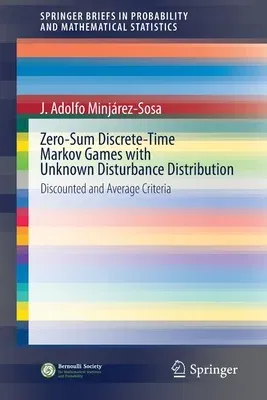J Adolfo Minjárez-Sosa
(Author)Zero-Sum Discrete-Time Markov Games with Unknown Disturbance Distribution: Discounted and Average Criteria (2020)Paperback - 2020, 28 January 2020

Qty
1
Turbo
Ships in 2 - 3 days
In Stock
Free Delivery
Cash on Delivery
15 Days
Free Returns
Secure Checkout

Part of Series
Springerbriefs in Probability and Mathematical Statistics
Print Length
120 pages
Language
English
Publisher
Springer
Date Published
28 Jan 2020
ISBN-10
3030357198
ISBN-13
9783030357191
Description
Product Details
Author:
Book Edition:
2020
Book Format:
Paperback
Country of Origin:
NL
Date Published:
28 January 2020
Dimensions:
23.39 x
15.6 x
0.74 cm
ISBN-10:
3030357198
ISBN-13:
9783030357191
Language:
English
Location:
Cham
Pages:
120
Publisher:
Weight:
199.58 gm